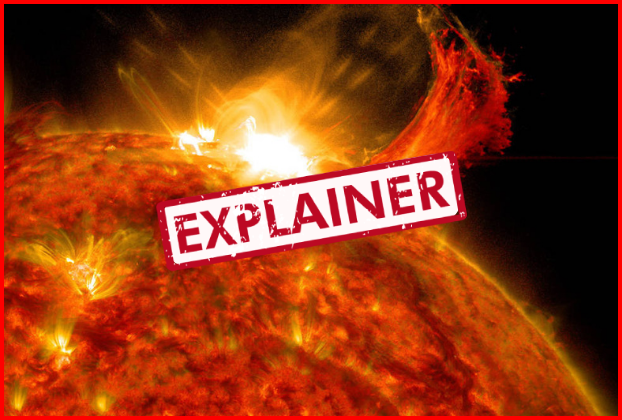
The internet is a crucial element of modern life. If it were to disappear, it would not only impact human communication but also potentially cause disruptions to the energy system, transportation system, economy, and global access to information.
Lately, social media users have expressed concern over the possibility of an “Internet Apocalypse” or the collapse of the Internet, citing NASA’s warning that this may happen soon.
Upon further investigation, we found that the claim above came from an article about NASA’s new AI that can predict solar storms in advance.
What is a solar storm?
A solar storm is a phenomenon that describes the release of energy from the sun. The result of a solar storm can cause various events, such as solar flares or solar winds, that can affect the Earth’s magnetosphere. These events can be collectively referred to as “Space Weather.“
In this article, NASA explains the possible impacts of solar activity:
“The Sun constantly sheds solar material into space – both in a steady flow known as the “solar wind,” and in shorter, more energetic bursts from solar eruptions. When this solar material strikes Earth’s magnetic environment (its “magnetosphere”), it sometimes creates so-called geomagnetic storms. The impacts of these magnetic storms can range from mild to extreme, but in a world increasingly dependent on technology, their effects are growing ever more disruptive.”
Therefore, NASA has not issued any warnings of a geomagnetic or solar storm that could affect technology and the internet. However, they did mention a new AI system that could help cope with and prevent such impacts from solar storms on Earth.
How does space weather affect the world?
As modern society heavily relies on technology, severe space weather can affect many types of technology, including power grids, oil and gas pipelines, GPS navigation systems, and even radio communication systems.
One of the most well-known examples of space weather is the Hydro-Québec power network failure on March 13, 1989. This failure was caused by geomagnetically induced currents (GICs) resulting from a malfunctioning transformer. The GICs were caused by a geomagnetic storm triggered by a Coronal Mass Ejection (CME) ejected from the Sun on March 9, 1989. The power outage lasted over 9 hours and affected over 6 million people. (Source)
Possibility of an “Internet Apocalypse” Event
Although NASA has not yet warned about an Internet Apocalypse event, Sangeetha Abdu Jyothi, a computer science expert from the University of California, has studied the impact of solar storms that could affect the world’s Internet infrastructure.
According to his research, “Solar Superstorms: Planning for an Internet Apocalypse,” which analyzes real-world data, solar superstorms are large-scale solar storms that can generate powerful radiation and particle explosions. The research estimates the likelihood of a solar storm causing a major internet outage is between 1.6% and 12% over a decade. These storms can cause damage to satellites, power grids, and other critical infrastructure, including submarine cables, which are the backbones of the Internet infrastructure. The research found that submarine cables are more at risk of damage than land-based cables and that the United States is at greater risk of internet disruption than other countries.
This research also discusses the prevention of internet damage caused by solar storms. It recommends that submarine cable service providers take measures to prevent cable damage from solar storms, such as installing protective systems and developing software to improve the system. It also suggests that governments and international organizations work together to develop a unified approach to handle solar storms.
While it is statistically and theoretically possible, James Ball, the author of “The System: Who Owns the Internet, and How It Owns Us,” a book detailing the internet’s infrastructure, isn’t too concerned about the threat from space. He believes that the threat to the internet may be more terrestrial than extraterrestrial, as problems with infrastructure that no one is ready to handle remain a concern.
As Ball stated, “In practice, I’m not too worried. Those aren’t the top of the list of things vulnerable to the occasional flare. In reality, the threats to the internet are more earth-bound – the infrastructure is creaking and no-one’s in charge.” (Source)







